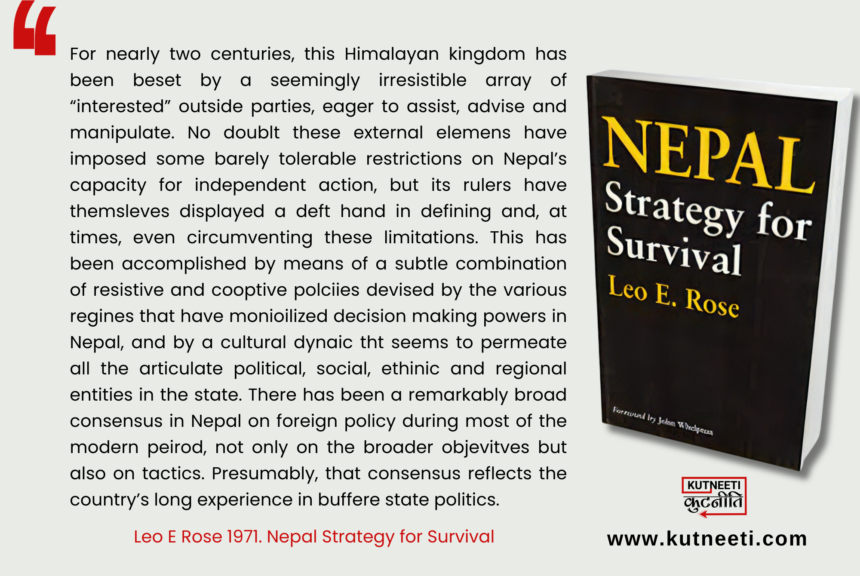For nearly two centuries, this Himalayan kingdom has been beset by a seemingly irresistible array of “interested” outside parties, eager to assist, advise and manipulate. No doublt these external elemens have imposed some barely tolerable restrictions on Nepal’s capacity for independent action, but its rulers have themsleves displayed a deft hand in defining and, at times, even circumventing these limitations. This has been accomplished by means of a subtle combination of resistive and cooptive polciies devised by the various regines that have monioilized decision making powers in Nepal, and by a cultural dynaic tht seems to permeate all the articulate political, social, ethinic and regional entities in the state. There has been a remarkably broad consensus in Nepal on foreign policy during most of the modern peirod, not only on the broader objevitves but also on tactics. Presumably, that consensus reflects the country’s long experience in buffere state politics.
Leo E Rose 1971. Nepal Strategy for Survival
Navigating External Pressures: Nepal’s Resilient Foreign Policy Strategy

